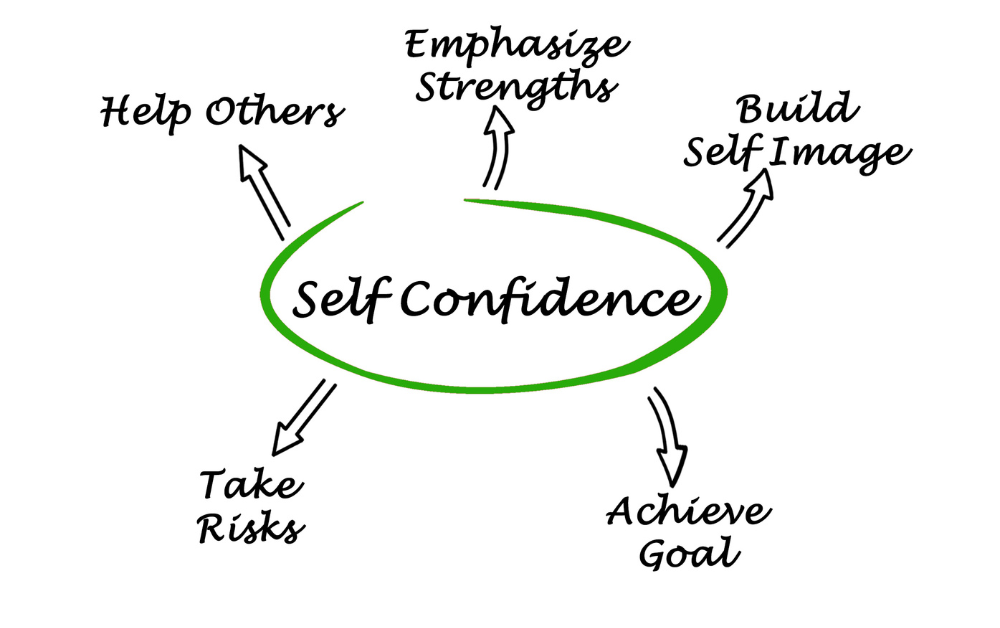How to develop self-confidence at work?
We spend most of our time at work. The way we deal with work responsibilities and new challenges on a daily basis can have a huge impact on our self-confidence. A negative team atmosphere and a feeling of being undervalued will, in the long term, cause us to stop taking initiative and our self-esteem will decrease.
So how do we develop self-confidence at work?
What exactly is self-confidence?
Self-confidence is a quality that defines our attitude towards ourselves and the world around us. It is an inner conviction of the validity of our judgements, value system and actions taken on a daily basis. A confident person has high self-esteem, which does not mean that he or she will be arrogant or unpleasant at the same time. Self-confidence is often equated with assertiveness and ambitious pursuit of goals. People displaying this trait are very active and are not afraid to express their own opinion. At work, they are willing to share their ideas and the opinions of others do not have a decisive influence on their well-being.

How can professional work affect self-confidence?
At work, we are under constant pressure, and our behavior is judged by superiors, customers and co-workers. If we notoriously experience situations in which someone undermines our skills and competence, our mood can drop significantly after a while. Self-confidence is also affected by successes and failures, as well as the prestige of the position held. In the case of this trait, salary will also be of no small importance. People with a high salary tend to feel more valued, so they pay less attention to minor failures at work. In contrast, a lack of self-confidence can cause any delay in completing an assignment or negative feedback to be exaggerated by the employee. As a result, such a person can often become frustrated and bitter, and being at work becomes an unpleasant chore.
Read also: What is remote working
How to develop self-confidence at work?
Everyone can experience difficult situations at work that will require facing their weaknesses. Therefore, it is useful to know how we can quickly and effectively develop self-confidence in the workplace. First of all, we should change our attitude towards failures. We need to realize that mistakes can happen to even the best professionals, and a single mistake should not derail years of professional experience. If we have a particularly bad time at work, it is worth focusing on finding solutions. To do this, we can enroll in an interesting training course, read a new book or find a new market for the services or goods we sell. Feeling confident at work is also affected by the position we hold in the team. It will be a good idea to get involved in the life of the company, so we will quickly be noticed and appreciated, and this will effectively boost our ego.
How to work on self-confidence at work?
A self-confident person should first of all be assertive. Therefore, if a co-worker asks us for a favor, let’s not agree to it right away, but think about whether we really want and can do something for him. It may be a bit difficult for us to refuse, but it is worth overcoming our resistance to gain respect among co-workers. There are situations at work where we may feel insecure. A new project, a change of supervisor or new software are just some examples of changes that affect our mood. If we don’t know how to perform a task, let’s not be afraid to ask questions. This way we will find out what our superiors expect of us and show them that we care about our work. Another element that has a big impact on confidence in the workplace is constructive communication with co-workers. Try to avoid phrases like “never” and “always.” If we want to criticize someone, let’s evaluate specific behavior instead of referring directly to attitudes and personality traits. Let’s also remember that self-confidence is related to being active and taking initiative. If we are passive on a daily basis, it is imperative that we change this. To do this, we can, for example, volunteer for an additional project, speak up at a meeting or propose new and interesting solutions.
Self-confidence is an important trait that can significantly affect our performance at work and the quality of our lives. Therefore, while performing professional duties, we should not forget about our needs and expectations. Sometimes even a small change in attitude can bring surprisingly good results. Daily work on ourselves will quickly make work an interesting challenge for us and we will come to it with pleasure.
Read also: How to write a resume?
 Back
Back